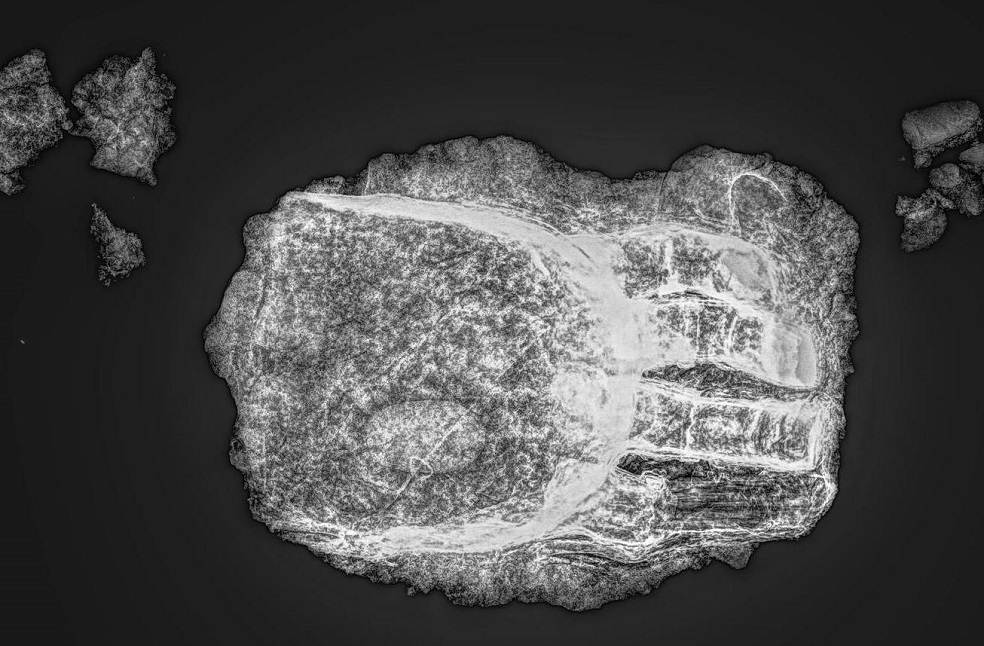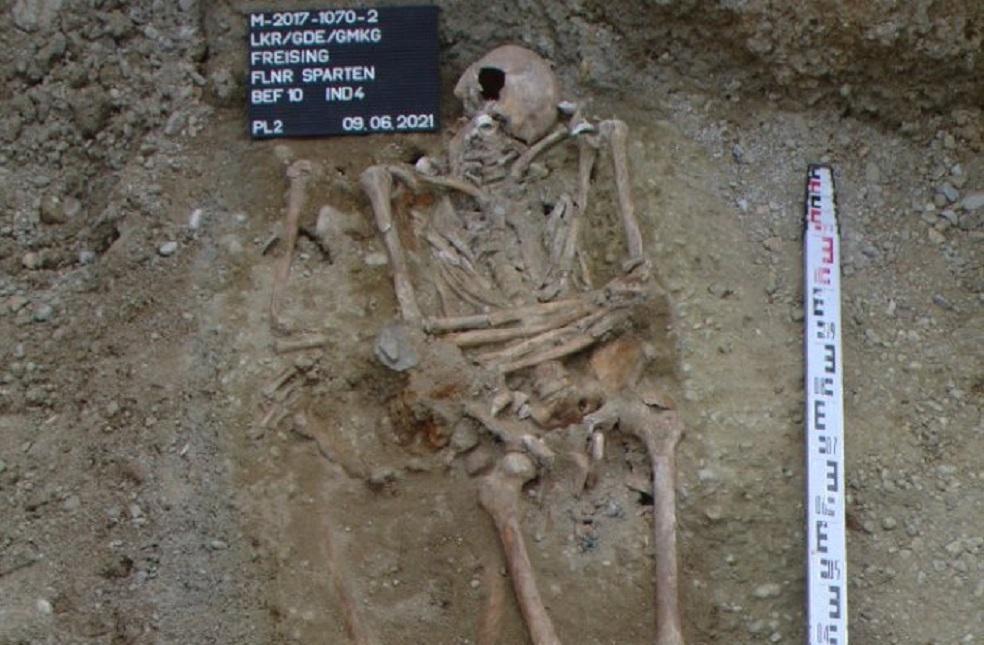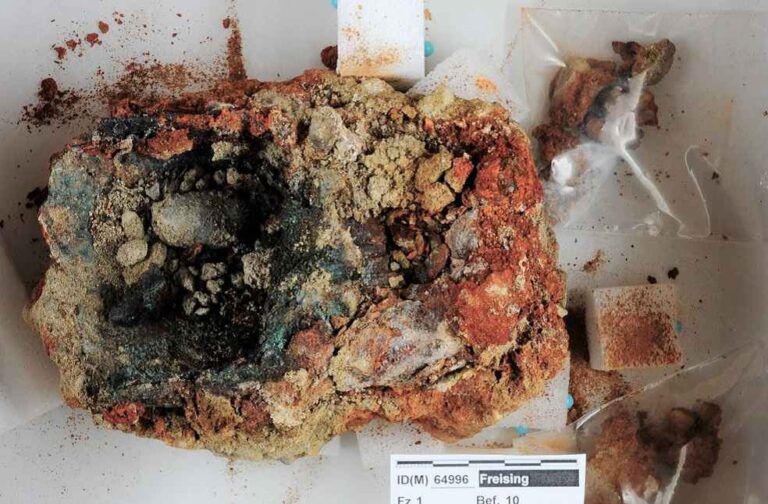Germany: Archaeologists in Germany have discovered a centuries-old skeleton with a metal prosthetic hand to replace four missing fingers. The Bavarian State Office for Monument Preservation stated that archaeologists used carbon dating to find that the man died some time between 1450 and 1620, aged between 30 and 50 years old, making the prosthetic hand potentially almost 600 years old.
“The fingers on the man’s left hand appear to have been amputated, and the remaining part of the hand was surrounded in a hollowed-out case wrought from iron and other metal, revealing the advanced state of medicine at the time,” the archaeologists said in a statement.

“The hollow hand prosthesis on the left hand added four fingers,” Mr. Walter Irlinger, head of the Bavarian archaeological monument conservation department, commented.
“The index, middle, ring, and little fingers are individually formed from sheet metal and are immobile. The finger replicas lie parallel to each other, slightly curved. Presumably the prosthesis was attached to the stump with straps,” Mr. Irlinger added.
According to reports, a bandage-like fabric was found inside the prosthetic hand, believed to be used to cushion the stump. The German archaeologists found the remains in a grave near a church in the Bavarian town of Freising, about 40 kilometers north of Munich.

Freising has a history of several battles during the Middle Ages and during the Thirty Years’ War of 1618–1648. “This probably increased the number of amputations and consequently led to more prostheses,” the statement further remarked.
According to archaeologists, about 50 similar prostheses dating from the same time period have been discovered in Central Europe, which range from an immobile one like the one found in Friesing to an intricate, moving prosthetic hand famously worn by the knight Götz von Berlichingen after 1530.



